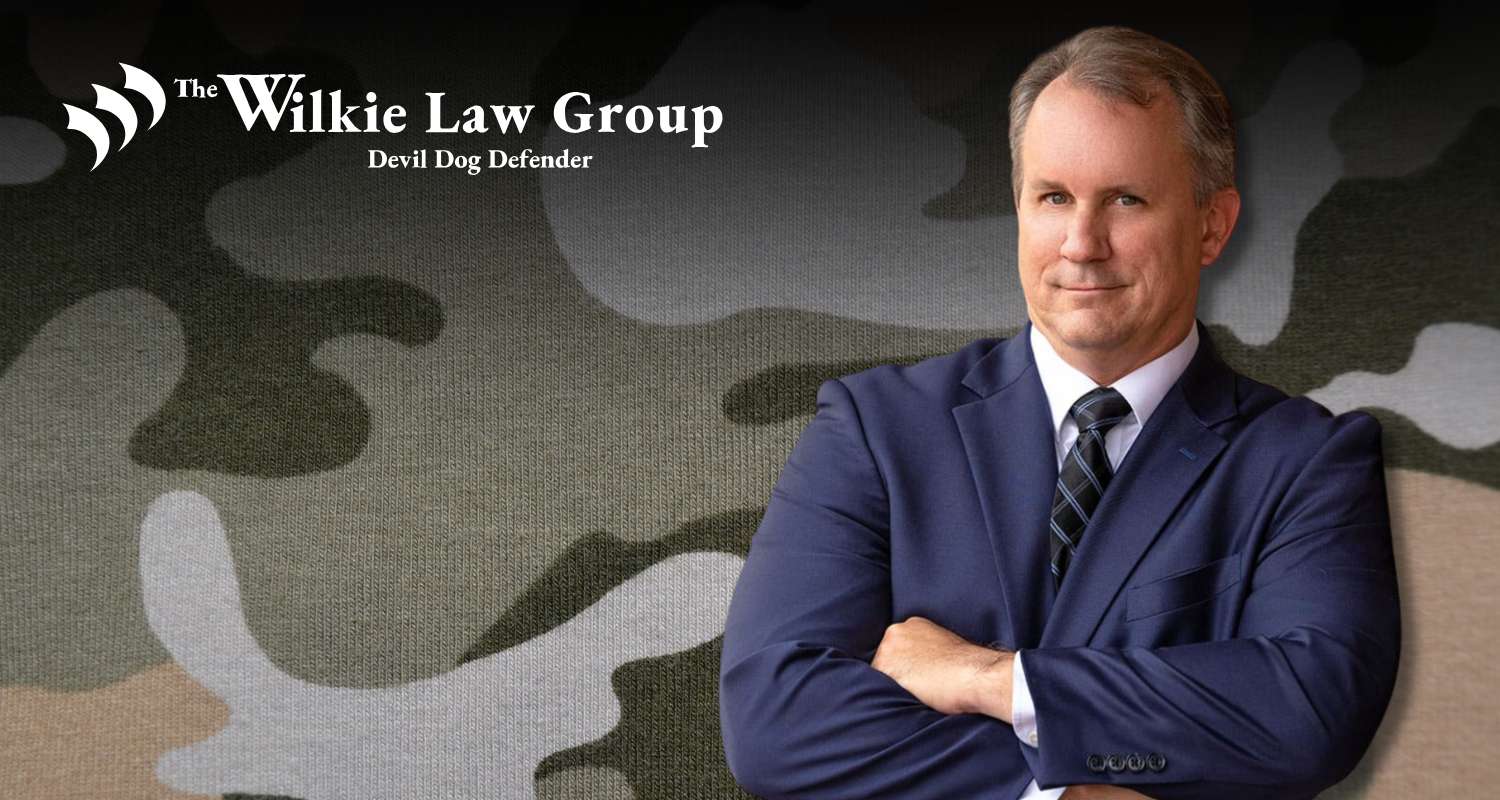Military Discharge Upgrade Lawyer
Private Military Lawyer for Discharge Upgrades
Home » Military Defense Lawyer » Administrative Discharge » Military Discharge Upgrades
Military Counsel
Experienced Jacksonville, NC Military Lawyers for Discharge Upgrade
The civilian population commonly believes that there are two types of military discharge: honorable discharge and dishonorable discharge. However, this is not the case. While there are two broad types of military discharge, Administrative and Punitive, each of these has many sub-categories. Not all types of discharges are bad: many are simply procedural. But, if you did receive a punitive discharge, you will probably want to consider fighting it.
It’s important to learn about the specific nature of your discharge. Knowing more about it will help you and your family members understand your future options and VA benefits. An experienced military discharge upgrade lawyer can help. Although the military will provide you with an attorney, finding an independent attorney will almost always benefit you in the long run. While military-appointed attorneys are smart, hard-working professionals, private civilian criminal defense attorneys tend to have more experience and don’t have any conflict of interest.
Located in Jacksonville, Aden Wilkie of The Wilkie Law Group serves the entire state of North Carolina as well as its surrounding states. He is also able to service any military installation located in the United States, but travel fees will apply. To speak with an experienced attorney at our firm regarding your military discharge upgrade, call (910) 333-9626 or reach out online today.

What is Military Discharge?
The U.S. Military discharges service members when they decide to release them from their obligation to serve. There are several types of military discharges. Each specific branch of the U.S. Military may have their own unique names for each of these discharge types, but generally, they include administrative, general, honorable, other than honorable, dishonorable, bad conduct, and medical discharge. There is also entry-level separation and separation for the convenience of the government.
Types of Military Discharge
Each discharge type carries its own implications, making it important for service members and veterans to understand their characterization and the potential for upgrades through the discharge review process, if applicable. Here are the various types of discharges in the military:
- Administrative Discharge – This broad category includes discharges such as a failure to meet standards, pregnancy, or other reasons that do not fall under misconduct or medical issues.
- Honorable Discharge – This is the most favorable discharge type, awarded to service members who meet or exceed the standards of performance and conduct. Veterans with an honorable discharge are eligible for the full range of benefits, including education, healthcare, and home loan programs.
- General Discharge Under Honorable Conditions – A general discharge indicates that a service member’s performance or conduct was satisfactory but did not meet the expectations for an honorable discharge. Benefits eligibility may be limited, though many are still available.
- Other Than Honorable Discharge (OTH) – This is an administrative discharge given for misconduct in the military, failure to meet standards, or other issues not amounting to a court-martial. Veterans with an OTH discharge typically face restrictions on accessing VA benefits.
- Dishonorable Discharge – This is the most severe discharge type, given after a general court-martial for grave offenses such as desertion, murder, or sexual assault. A dishonorable discharge strips the individual of most, if not all, military and VA benefits and carries significant stigma.
- Bad Conduct Discharge (BCD) – A BCD is issued as a result of a court-martial and indicates serious misconduct. It is considered punitive and typically leads to ineligibility for most VA benefits.
- Medical Discharge – Medical separation or discharge is issued to service members who cannot continue their duties due to a physical or mental health condition incurred or aggravated during service. This discharge may allow access to VA healthcare and service-connected disability compensation.
- Entry-Level Separation (ELS) – Granted during the first 180 days of service, an ELS occurs when a service member is unable to adapt to military life or meet the requirements for training. This discharge is neither an honorable nor dishonorable discharge characterization.
- Separation for Convenience of the Government – This discharge is issued under specific circumstances, such as hardship or other unique situations, at the discretion of the military.

Military Discharge FAQs
What Does General Discharge Mean?
A general discharge in the military means that a service member's performance or conduct was satisfactory but did not fully meet the standards required for an honorable discharge. This type of discharge is often issued for minor disciplinary infractions or failure to meet expectations in areas like job performance or behavior.
While a general discharge is not as severe as other less favorable discharge types, it can limit access to certain benefits, such as the GI Bill for education. However, many other veterans’ benefits, like VA healthcare, may still be available.
Is Administrative Discharge Bad?
An administrative discharge isn’t inherently bad, as it covers a range of discharge types, including both honorable and general discharges, which are not punitive.
However, if the administrative discharge is classified as other than honorable (OTH), it may carry negative implications, such as limited access to veterans' benefits and potential challenges in civilian life.
Do You Lose Your Security Clearance With General Discharge?
A general discharge may impact your security clearance in the military, but it does not automatically result in its loss. The final decision depends on the circumstances of the discharge and the specific reasons for it, as these factors are reviewed during the security clearance evaluation process.
What is Honorable Discharge?
Honorable discharge is the best type of discharge a service member can receive. This is given to those who performed their duties well and executed their missions devotedly. They were generally considered an asset to whichever branch of the military in which they served.
What is Other Than Honorable (OTH) Discharge?
An other than honorable discharge is the most severe type of administrative discharge, but it does not require a court martial. OTH is usually given for:
- Security violations
- Trouble with civilian authorities
- Assault
- Drug possession in the military or other violations
The reason for an OTH depends on the severity of the offense and precedent in your specific branch of the military, but in any case, receiving an OTH creates a significant barrier to future military service.
How Does Someone Receive a Bad Conduct Discharge?
A bad conduct discharge (BCD) is issued as a punitive measure following a court-martial for serious misconduct while serving in the military. This type of discharge is typically given after a special court-martial or general court-martial and may involve offenses such as theft, assault, or insubordination.
The decision to issue a BCD is made by a military judge or jury based on the severity of the misconduct and the evidence presented during the trial. This type of military discharge results in the loss of most military and veterans' benefits and carries significant long-term consequences for the individual.
What is a Less Than Honorable Discharge?
A less-than-honorable characterization is a term commonly used to describe military discharges that fall below the standard of an honorable discharge. These discharges are typically associated with conduct or performance issues during service and can significantly affect a veteran's ability to access to benefits, re-enlistment eligibility, and civilian opportunities.
What is General Discharge Under Honorable Conditions?
If a service member receives a general discharge under honorable conditions, it indicates that their service was satisfactory but it did not deserve the highest level of discharge due to performance and conduct.
Many veterans with this type of discharge may have engaged in minor misconduct, but they are still eligible for most VA benefits.
What is a Dishonorable Discharge?
Dishonorable discharges are like bad conduct discharges, but rather than administrative they are considered punitive discharges. In order to get this type of discharge, you must be convicted of a criminal offense at a general court-martial. This is reserved for very serious offenses such as:
- Desertion
- Sexual assault
- Murder
What is Entry-Level Separation?
An entry-level separation (ELS) is neither classified as “good” nor “bad” because it occurs early in a service member's career, typically within the first 180 days of active duty. This type of separation is often issued to individuals who are unable to adapt to the demands of military life, fail to meet basic training standards, or experience medical or personal issues that prevent them from continuing service.
Since an ELS happens during the initial phase of service, it does not result in a formal characterization of discharge, such as honorable or dishonorable, and generally has minimal long-term impact on the individual’s record or civilian opportunities.
When is a Medical Separation Discharge Issued?
A medical separation discharge is issued when a service member is deemed unfit for continued duty due to a physical or mental health condition that significantly impacts their ability to perform their military duties. This determination is made through the Medical Evaluation Board (MEB) process, which assesses the service member's condition and evaluates whether it meets the standards for retention.
What Does Separation for Convenience of the Government Mean?
Separation for the convenience of the government is a general, catch-all type of voluntary separation or discharge. The military uses this when it wants a service member to leave but doesn’t have a reason for any other type of discharge or separation.
What is Military Discharge Upgrade?
Military discharges from any branch of the military that are anything other than honorable will have serious consequences. In many cases, you can lose your VA benefits. It might also be difficult to find employment. Your future is at stake and you should do everything in your power to fight your discharge.
Fortunately, it is possible to upgrade your discharge after the fact. The Discharge Review Board (DRB) hears these requests. They examine your case and the circumstances in order to determine if you are eligible for an upgrade.
When the Discharge Review Board hears your case, they will consider the following factors:
- The specific reasons for your discharge
- Letters of reference and recommendation
- Your general conduct
- Any educational achievements
- Your record of community service
- The amount of time since your discharge
- Your family relationships
- Any relevant employment history
During this time, a skilled, experienced military discharge upgrade attorney can help you prepare your case and improve your situation.
How Do You Upgrade Military Discharge from General to Honorable?
Upgrading your general military discharge will depend on the amount of time since the discharge, whether or not you’ve applied for an upgrade already, and your prior conduct. Hiring a military record correction lawyer offers you your best chance at upgrading your discharge.
As of recently, every branch of the military has made it easier to apply for a Military Discharge upgrade if your case involved:
- Post-traumatic stress disorder (PTSD)
- Other mental health conditions
- Traumatic brain injury (TBI)
- Military sexual trauma, including military sexual assault or harassment
- Sexual orientation (this includes the Don’t Ask, Don’t Tell policy)
Note that this is not an exhaustive list. There are other circumstances in which you might be eligible for an upgrade from general to honorable.
How Do You Get an Other Than Honorable Discharge Upgrade?
You are not eligible for VA benefits if you received an Other Than Honorable Discharge. Given this, you will almost certainly want to try to upgrade it.
You can begin by applying for VA compensation or pension through your local Veterans Affairs Service Office. You can also apply through eBenefits. Since you received an OTH, a Character of Service review will be triggered, which will start a review at the VA regional office. This will determine if your service was honorable enough for you to be able to receive VA health care and compensation.
In most cases, your compensation will originally be denied if you have an OTH discharge.
You will need to submit evidence that your service was honorable. An experienced military discharge upgrade lawyer like Aden Wilkie can help you prepare this evidence.

How To Upgrade Your Military Discharge
Preparing your Discharge Review Case is challenging but achievable with the right approach and guidance. If your discharge occurred under circumstances you believe warrant reconsideration, you may apply for a discharge upgrade through the appropriate military review board. While each branch has its own distinct process, it generally follows the same general guidance, including providing evidence that supports your case.
An experienced military defense lawyer, like Aden Wilkie, understands the several factors that review boards consider, such as evidence of post-service accomplishments, mitigating circumstances during service, and procedural errors in your discharge. With your attorney’s advice, you will gather the materials necessary to demonstrate why you deserve an upgrade.
Aden Wilkie and his team at The Wilkie Law Group have successfully helped many servicemen and women present compelling cases, and they will work tirelessly to achieve the outcome you deserve.
Benefits of Military Discharge Upgrade
There are a number of benefits that come with receiving a military discharge upgrade, including:
- Access to VA Benefits: Upgrading discharges allows veterans to regain eligibility for vital benefits such as healthcare, education through the GI Bill, and home loan programs.
- Improved Employment Opportunities: A better service record makes it easier for veterans to secure jobs, as many employers consider military records when evaluating candidates.
- Restoration of Military Honor: Upgrading discharges can help veterans correct their service record to reflect the honorable aspects of their service, restoring their dignity and pride.
- Increased Financial Assistance: Veterans with upgraded discharges may qualify for disability compensation, pensions, and other financial benefits tied to their military records.
- Better Access to Support Services: Many support programs for military members and veterans require an honorable or general discharge, which an upgrade can provide.
- Correction of Injustice: If a veteran’s discharge was due to errors, bias, or circumstances beyond their control, an upgrade can rectify these issues.
- Improved Reenlistment Opportunities: For those considering returning to military service, an upgraded discharge may improve eligibility for reenlistment.
- Enhanced Personal and Family Legacy: Upgrading discharges ensures that military members and their families can take pride in their contributions, leaving a positive legacy for future generations.

How a Military Discharge Upgrade Attorney Like Aden Wilkie Can Help
A military discharge upgrade attorney like Aden Wilkie can provide invaluable assistance throughout the discharge upgrade process by guiding you through the many challenges of preparing a strong case. With extensive knowledge of the Marine Corps, Air Force, Navy, Coast Guard, and Army Discharge Review Board, Aden Wilkie helps clients compile the necessary discharge paperwork and submit a well-documented discharge upgrade request to the appropriate board.
He ensures that critical supporting documents, such as military records, medical records, evidence of mental health services, police reports, credit reports, and documents related to your original discharge are properly included to support your case. Additionally, he assists in obtaining character references highlighting factors related to your good conduct, such as steady employment and community involvement, to demonstrate your post-service improvements.
By presenting a thorough and convincing case, Aden Wilkie increases your chances of a favorable decision and helps restore the honor tied to your military service.
Schedule a Consultation with a Military Discharge Upgrade Attorney Today
If granted an upgrade, doors will open for you. Your future as well as the future of your family will be brighter, and at The Wilkie Law Group, we understand how important this is. Attorney Aden Wilkie has established a reputation as not only a fearless Marine but as one of the most aggressive military discharge upgrade lawyers in practice.
Located in Jacksonville, NC, our law firm services armed forces at Camp Lejeune, Fort Bragg, and all other bases, camps, stations, and posts across the United States. Give us a call at (910) 333-9626 to schedule your confidential consultation today.





